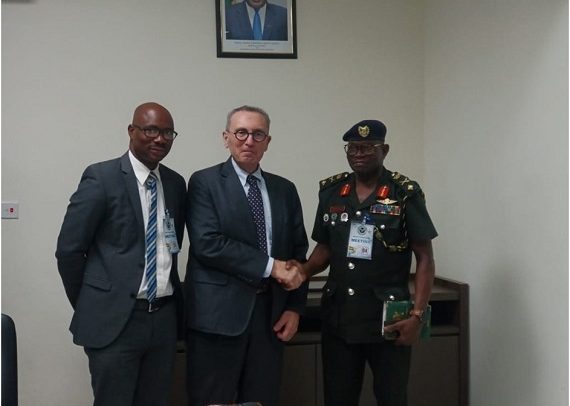
In a bid to combat the twin menaces of money laundering (ML) and terrorist financing (TF), the Financial Intelligence Centre (FIC) has partnered with the University of Professional Studies, Accra (UPSA) in a strategic seminar series aimed at deepening understanding and awareness of these issues.
Addressing attendees at the seminar, Ms. Lucy Abebrese, Head of Compliance at the FIC, emphasized the growing prominence of ML/TF globally. She cited estimates from the United Nations Office on Drugs and Crime (UNODC), which suggest that approximately US$2.1 trillion, up to 5 percent of the global Gross Domestic Product (GDP), is laundered annually.
Ms. Abebrese highlighted the pivotal role of the Financial Action Task Force (FATF), the global standard-setting body, in combating ML/TF. The FATF’s 40 Recommendations advocate for legislative measures criminalizing these offenses, the establishment of Financial Intelligence Units (FIUs) for analyzing and disseminating financial intelligence, and the adoption of a risk-based approach to tackling the issue.
Ghana, Ms. Abebrese noted, has made significant strides in countering ML/TF through comprehensive legal and institutional frameworks. The recently enacted Anti-Money Laundering Act, 2020 (Act 1044), and the well-resourced FIC serve as primary pillars of the country’s robust Anti-Money Laundering and Countering the Financing of Terrorism (AML/CFT) regime.
She further emphasized Ghana’s efforts in implementing beneficial ownership registers and enhancing supervision of sectors prone to ML/TF risks, such as Non-Governmental Organizations (NGOs) and the real estate industry.
Ms. Abebrese underscored the importance of collaboration between the FIC and various stakeholders, including accountable institutions, competent authorities, the private sector, and international partners like the German Corporation for International Cooperation (GIZ).
Drawing attention to the role of individuals and institutions in combating ML/TF, Ms. Abebrese cautioned against unwitting involvement in illicit financial activities. She highlighted common tactics employed by criminals, such as using students as conduits for transferring illicit funds or exploiting educational institutions for laundering money.
Moreover, Ms. Abebrese urged vigilance regarding fraudulent schemes, including deceptive job advertisements and internet scams, which could unwittingly facilitate ML/TF activities.
She concluded by emphasizing the ongoing National ML/TF Risk Assessment spearheaded by the FIC, aimed at identifying vulnerabilities and proposing mitigating measures. Ms. Abebrese commended UPSA’s involvement in this critical national endeavor.
In closing, Ms. Abebrese thanked all participants for their support and encouraged active engagement in combatting ML/TF, stressing the collective responsibility in ensuring that only funds from legitimate sources circulate within the economy.
The seminar, characterized by insightful discussions and interactive sessions, aimed to equip attendees with the knowledge and tools necessary to contribute effectively to Ghana’s ongoing efforts in combatting ML/TF.
As the fight against money laundering and terrorist financing continues, collaborative initiatives like this seminar serve as crucial platforms for fostering awareness, understanding, and collective action against these pervasive threats to global financial integrity.
The post Financial Intelligence Centre collaborates with UPSA to Combat Money Laundering and Terrorist Financing appeared first on The Business & Financial Times.
Read Full Story




















Facebook
Twitter
Pinterest
Instagram
Google+
YouTube
LinkedIn
RSS